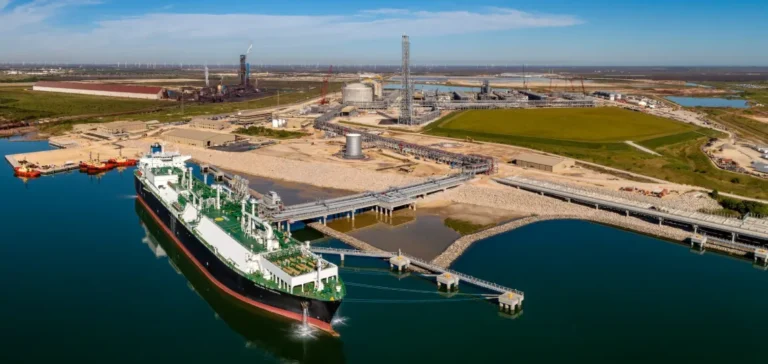Cheniere Energy has officially approved funding for two new mid-scale liquefaction trains at its Corpus Christi Liquefaction (CCL) site, located in Texas. This expansion will boost the terminal’s capacity by 3 million tonnes per annum (Mtpa), bringing Corpus Christi’s total production capacity above 30 Mtpa by 2029. The company has entrusted the project to the American infrastructure specialist Bechtel, with work set to begin immediately following the recent final authorization from the Federal Energy Regulatory Commission (FERC).
Expanded Capacity and Development Timeline
The project comprises two additional trains, numbered 8 and 9, utilizing mid-scale modular liquefaction technology, enabling faster deployment compared to traditional large-scale units. This “midscale” technology also offers increased flexibility for site operations and responsiveness to growing global demand for liquefied natural gas (LNG). The expansion complements the existing Corpus Christi Stage 3 program, whose first train began production earlier this year, with full commissioning expected by 2026.
According to the schedule presented by Cheniere Energy, construction of the new trains will begin by mid-2025, with commissioning expected in 2029. These additions will enable the company to achieve an aggregate capacity of around 63 Mtpa across its U.S. facilities, including its other major complex at Sabine Pass in Louisiana.
Commercial Contracts and Economic Prospects
The decision follows recent significant international contracts signed with PetroChina (China), PTT (Thailand), and OMV (Austria), securing immediate commercialization of this additional capacity. These long-term commercial commitments reflect the interest of many countries in ensuring their energy security by diversifying their LNG supply sources. These agreements substantially influenced the rapid approval of the project by Cheniere Energy’s board of directors.
Financially, the company has increased its total strategic investment envelope from 20 to 25 billion dollars through 2030. This financial commitment also includes a dividend increase for shareholders starting in the third quarter of 2025, subject to board approval. The annual dividend is projected at $2.22 per share, up from the previous dividend of $2.00 per share.
Expected Impacts on the Global LNG Market
With this expansion, Cheniere Energy significantly strengthens the dominant position of the United States in the global liquefied natural gas market. Currently, nearly 20% of U.S. LNG already passes through Corpus Christi, a figure likely to increase considerably after the project’s completion. The associated port infrastructure will also be upgraded to accommodate larger LNG carriers, further consolidating the terminal’s role as a major export hub on the U.S. Gulf Coast.
This strategic initiative occurs amid increased international competition among global LNG producers, particularly from Australia and Qatar. The Corpus Christi project is thus critical to maintaining the long-term competitiveness of U.S. LNG.






















